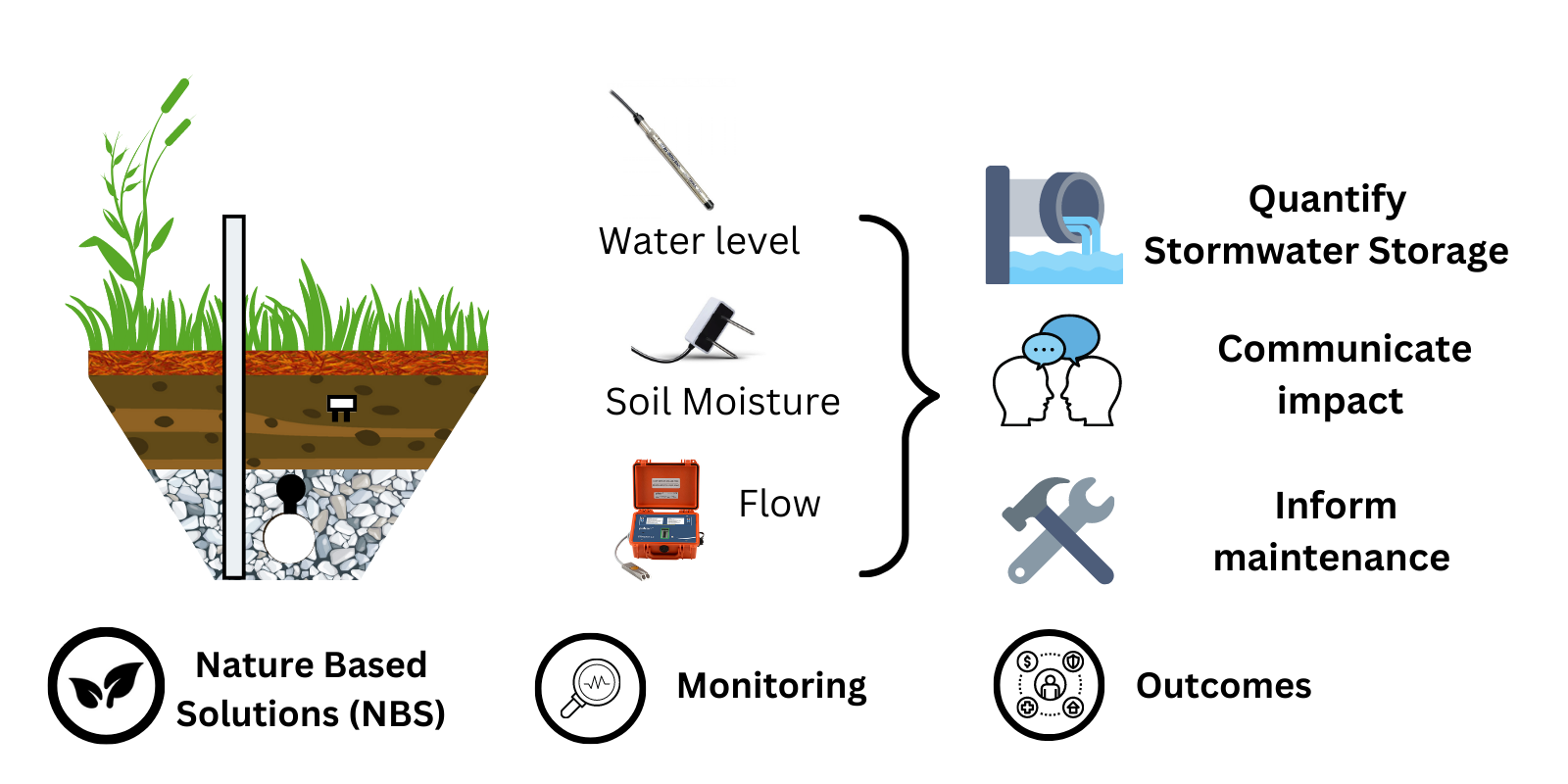Community-based monitoring methods for nature-based solutions.
The Science
Green spaces with vegetation are an effective method of managing urban stormwater and reducing flooding. These green spaces and other measures that use natural or restored ecosystems to provide environmental benefits are often referred to as nature-based solutions (NBS). NBS have become increasingly popular in the face of more frequent and intense rainfall due to climate change. However, researchers lack consistent methods for evaluating the performance of NBS. This paper provides recommendations for consistent monitoring methods across different types and sizes of NBS, which allows for comparison regionally and amongst different NBS designs.

The Impact
Standard methods and guidelines for monitoring NBS will produce consistent performance data that can be used to track long-term performance, inform maintenance strategies, and design regional NBS for climate resilience. In addition, this data will allow researchers to quantify NBS systems’ stormwater storage benefits. This can support greater adoption of NBS and thereby decrease flooding and increase adaptation to climate change impacts. The recommendations presented in this paper are particularly useful for community-based organizations, nonprofit organizations, research institutions, and government agencies, such as municipal park districts or water and sewer authorities.
Summary
This paper provides a summary of available literature on commonly used methods for monitoring NBS and recommendations for consistent monitoring of community-centered NBS systems that vary in form, scale, and degree of naturalness. Specifically, the paper provides recommended sensor configurations for each type of NBS, as well as recommended types, numbers, and costs of sensors. In addition, the paper provides an overview of how this monitoring data can be used to evaluate NBS performance and common barriers to this type of monitoring.
PRINCIPAL INVESTIGATOR
Aaron Packman
Northwestern University
[email protected]
PROGRAM MANAGER
Sally McFarlane
U.S. Department of Energy,
Biological and Environmental Research (SC-33)
Urban Integrated Field Laboratories
[email protected]
Funding
This work was funded by the Walder Foundation Resilient by Nature, National Science Foundation’s (NSF) Systems Approaches for Vulnerable Evaluation and Urban Resilience project (grant no. 184868), and NSF’s SAGE project (grant no. 1935984). This material is based in part upon work supported by the U.S. Department of Energy, Office of Science, Biological and Environmental Research program’s Urban Integrated Field Laboratories Community Research on Climate and Urban Science research activity under Award no. DE-SC0023364.
References
O’Brien, C. M., et al. “Community-Centered Instrumentation and Monitoring of Nature-Based Solutions for Urban Stormwater Control.” Frontiers in Water 6 (2024). https://doi.org/10.3389/frwa.2024.1370501.



